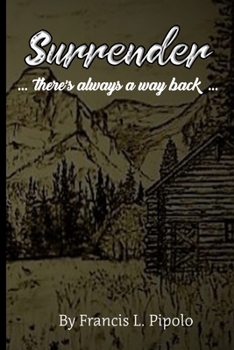"Surrender": ... there's always a way back ...
Reviewed By:
Deborah Lloyd
Review Rating:
4 Stars
Reviewed By Deborah Lloyd for Readers' Favorite
John Decker, now in his late 40s, was a United States Federal Marshal in Surrender, Montana, at the foot of the Beartooth Mountains. He and his wife Rachel knew hardship and grief after the death of their son whom they called Young John. It was now July 1876, a year after his death. Surrender was a typical small town during this era, with its little church, local blacksmith, hotel, saloon, and other usual businesses. John and his deputies were busy with local outlaws. He also had to deal with the rich Sam Wainwright and his trouble-making son Pike. Rachel kept busy with her role as a homemaker and staying in touch with her stepsister Alice who lived in Denver, Colorado. She grieved over the death of her son in her own quiet way. In the novella Surrender: There's Always a Way Back penned by Francis L. Pipolo, a western story is told.
One of the most interesting aspects of this book is the large cast of characters. There is a wide variety, both honorable and not, and each one is distinguishable with unique qualities. While there is plenty of action involving the outlaws and John and his deputies, there is another developing story regarding the overwhelming grief experienced by Marshal Decker and Rachel. Some of the decisions he makes illustrate how his grief and guilt were affected by his loss. Author Francis L. Pipolo has written an enjoyable short story about life in the west in the late nineteenth century in Surrender: There's Always a Way Back. Plenty of action, with real-life implications.




